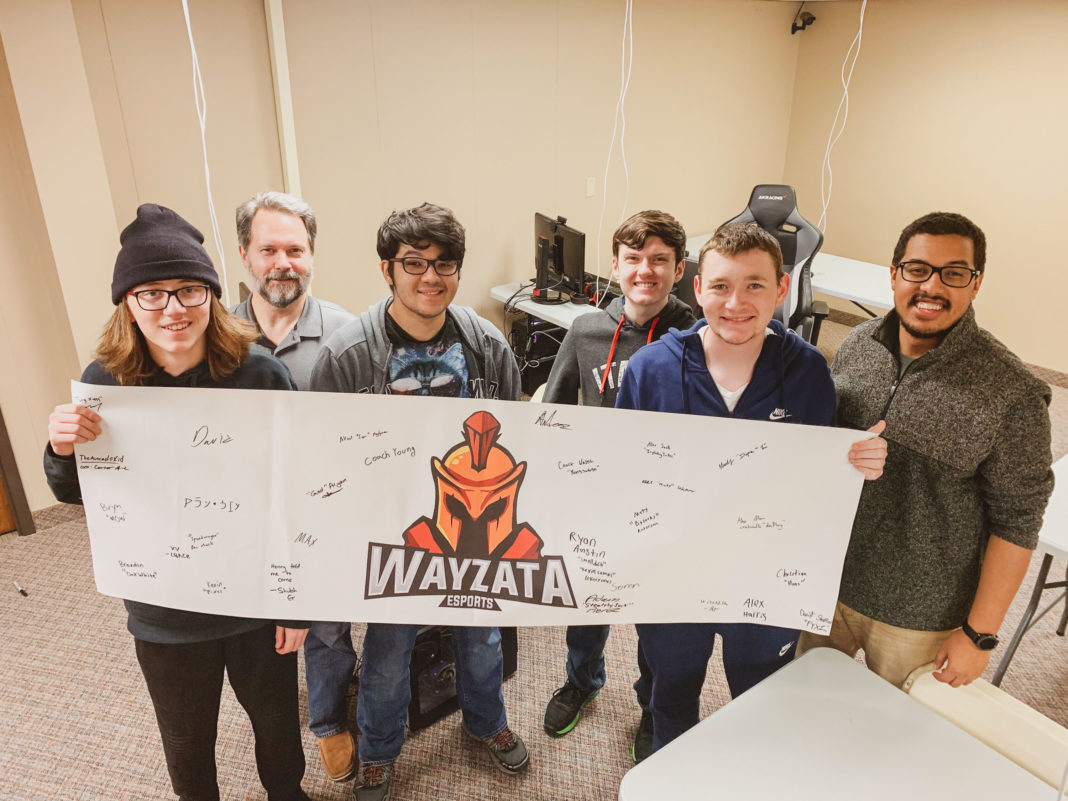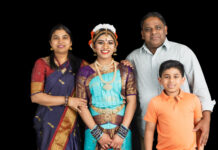The New Era of Online Video Games
A common current video game stereotype likely conjures images of adolescent boys hunkering down with friends in someone’s basement to blister their thumbs for hours on end with little need for bipedal movement beyond a trip to the fridge or pantry for sustenance. But to someone in the 80’s, playing video games meant pumping quarters into arcade machines. And in the late 1990s with the development of online gaming emerging, playing a video game became something different again. A phone call to a friend to “come over and play Nintendo” was replaced by a headset, a microphone and a high speed internet connection. These three tools along with next gen computer and console game systems gave players the ability to communicate, collaborate and compete with fellow gamers across the world without ever leaving their home (or dorm room).
Over the last 20 years online gaming has evolved in two major ways. First there is the proliferation of the mobile gaming industry which has seen huge growth in the past 10 years and has attracted a much more diverse demographic of players than those that would otherwise purchase a Playstation, Xbox or a gaming PC. According to Techjury, there were an estimated 2.1 billion mobile gamers in 2019. Games like Fortnite alone have been downloaded by over 250 million people as of last year. The other major change is known as Esports, or electronic sports, which is a type of organized gaming that involves teams of players competing against other teams in multiplayer video game competitions and tournaments for prizes, bragging rights, sponsorships and even cash. Many of these tournaments are now being broadcast live via streaming services like Twitch (owned by Amazon) and ESPN, who in June of 2019 announced launching its own esports event series called EXP. Video games certainly have changed and if you keep calling them “video games” you might sound a little old to the current generation of gamers.
A Club’s Beginning
And in the midst of all this recent change an organization known as the Minnesota Esports Club has emerged right here in the Wayzata School District with a mission “to support and promote youth enrichment, leadership and education through electronic sports organization, development, competition and media production.” Billing itself as one of the top youth Esports in Minnesota, the club started in 2018 by a few Wayzata High School students including Billy Keran and Ben Mack as well as Ben’s father, Andy Mack and Peter Young, a student supervisor at Wayzata. Over the last few years the club has changed considerably to keep up with the changing face of competitive gaming and the interests and aspirations of their members. Being a member of the club is in many ways analogous to having a gym membership with many of the same benefits: having access to a training facility, the social benefits of being around others, and being immersed in what you are working towards. The Minnesota Esports Club currently has 25 members and they participate in a variety of tournaments based on both PC and console games. As tournaments are announced, the members of the club form teams, meet and train at their practice facility, and eventually compete in the tournaments. Clubs like the Minnesota Esports Club are a way to give gamers in-person interactions with their team members and for them to have that irreplaceable old school social experience where you see and talk to people, not just text and tap at them.
Although the club is currently drawing the majority of its members from Wayzata High School, it is operated and funded independently from the Wayzata School District. There are currently about 9 to 10 established teams in the state of Minnesota playing the most recognized esports games such as Overwatch, League of Legends and Super Smash Bros as well as games like Rainbow Six: Siege and Rocket League. One of the club’s main goals is to help facilitate all of the other teams that continue to pop up.
The Minnesota Esports Club teams have experienced success in many competitions including the impressive Rainbow Six Siege team winning national competitions twice against hundreds of other teams. Winning tournaments has its benefits and the benefits certainly keep getting better each year with prizes ranging from laptop computers to full ride scholarships. Some members have earned post-secondary scholarships and three were even offered full rides to Bethany Lutheran College for their gaming accolades. But winning tournaments and getting recognized doesn’t come easy in today’s complex and demanding competitive games. If you want to win, you need to practice.
Peter is the club’s main coach/supervisor and has spent countless hours making sure their practice facility is adequately staffed by himself or another adult. Their practice space is located in the lower level of an office building just east of 494 in Plymouth off of Highway 55. The club is officially listed as a nonprofit – 501(c)(3). Andy Mack, a Medina resident, and director of the club has contributed his own resources in getting the club going and working to acquire their new training facility. Andy decided to begin fully encouraging and supporting his son’s passion for gaming after watching his son Ben be consistently drawn to computer and video games versus other more traditional sports his entire youth. Andy had initially tried a computer design club but eventually found the most traction with the Esports Club idea. Membership fees for the club are currently at $220 per 3 month season. The club fee covers a tournament fee, player development and character/sportsmanship building as well as access to their 1,200 square foot practice facility/Esports lounge. The facility includes high speed internet access with plenty of electrical, a large room for competitions with gaming stations as well as two breakout rooms and a slew of brand new professional grade gaming chairs from X Rocker, the teams first official sponsor. Their training facility is open to all club members Monday – Friday from 3:30 pm-9:00 pm and weekends from 12:00 pm- 9:00 pm during which an adult supervisor is always present.
Esports as Education
They already have plans to do some remodeling work to the space such as adding a room for “shoutcasting.” Shoutcasting is just like a sportscaster, except for esports. The shoutcaster’s job is to run commentary on matches that both inform and entertain audiences watching the match. Shoutcasting is a critical component of making esports matches and competitions engaging and informative – just think of all the different historical sports commentators who brought their expertise and understanding of the game to the audience and how much that narrative brought the game to life for the audience. Shoutcasting is also one of various ancillary jobs esports is creating beyond just the professional players who compete for money and prizes. Andy Mack expounds on this emphasizing that, “along with esports there is this whole media production side that is a new venue of production. This is one of the attractions of Bethany Lutheran getting into esports as they are a big media production school. That’s one thing we want to bring into the club and offer members that in addition to being a competitor is we can teach for shoutcasting and media production in front of or behind the camera.” Peter Young adds that the club offers a shoutcasting package for a reduced rate of $100 per season allowing members to join for the purpose of practicing shoutcasting at the facility as an alternative for those who love and know the games but may not be as competitive as other players paying for full memberships. In addition to Bethany Lutheran College in Mankato, Concordia University in St. Paul is also offering esports scholarships. Below is an excerpt from Bethany Lutheran’s official website regarding their esports program:
Bethany Lutheran College seeks top-level competitors for varsity and JV competition in Overwatch, League of Legends, and Rocket League.
Bethany’s Erik “Doa” Lonnquist is an internationally acclaimed esports broadcaster, an alumnus of Bethany, and a founder of Bethany’s esports program. Bethany joined the National Association of Collegiate esports (NACE) in 2019 and offers a state-of-the-art esports gaming facility to its students.
This is an interesting trend especially when you juxtapose it against recent news that St. Cloud State and University of Minnesota Crookston are dropping their football programs due to financial concerns.
Club Operations and Achievements
The Minnesota Esports Club is currently just supporting Wayzata, but would very much like to help other schools such as Maple Grove, Armstrong, Hopkins or Edina to help charter their own teams. “We’d love to help,” Peter says, exhibiting an infectious enthusiasm. “For example, if kids from Hopkins wanted to have a team, we would help them create the branding for their Hopkins team and they would compete as Hopkins, but the Minnesota Esports Club would help manage their team and give them the resources they need in their endeavor. On the other hand, a school like Providence Academy could actually have their students join the Wayzata team since they are within the school district.” Andy Mack added, “And there are different types of leagues and tournaments where some want a specific high school team, where others are open and they could create an all-star team combining the best competitors from, for example, the entire west metro.” Peter described it as analogous to AAU basketball where you can see the best people from various high schools all playing together.
In their Own Words
The potential financial rewards and realistic career paths for professional gamers shoutcasters or being part of an esports ESPN esports production team are great, it seems the heart of the Minnesota Esports Club is in the comradery and daily, face-to-face interactions members get when they join and engage with others at the club’s practice facility. We interviewed four of the members in January asking them about their experiences in the club and this is what they had to say.
Junior Ben Mack on helping start the club:
Early on before the club officially began, my teacher said I got an email from the Electronic Gaming Federation (EGF) wondering if our school wanted to start an esports team and I had showed interest in it earlier and so me and some of my classmates came together. One of my classmates Billy who knew Peter Young was big into it and got him to supervise the club. It started from there. There was already an informal Smash Club prior to that where players would go to the lunchroom and play Super Smash Bros. against each other. So we kind of absorbed that club and that gave us a lot of momentum to start. My favorite part is being able play at a higher level than I have before with people who call my friends. I am able to make a lot of friends through it and I am able to bond with them over the game. You have to be very coordinated with your team so there is a lot of communication and you get to know these people very well. When you’re playing at a high level in very high stress situations, it feels really good when you when and really hard when you lost but you’re always with your team.
Junior Kevin Miranda on being a club manager for the Smash Bros. section:
My favorite part of the club, at least in the section I manage, is talking to all the people here. They’re a nice group of kids and I really like to see them improve because they really have and it’s really awesome watching them get better. I also really like just playing the game.
Sophomore Michael Heacock who is a fan of Rocket League and Rainbow Six: Siege:
My favorite part of the club is meeting new people while playing with people that I already know and making friends. I also like it because you get to play against other people that are your level.
Wayzata High Graduate Thomas Kirtley on joining the club:
Before all this, I just used to not hang out with anybody. I stayed inside and now I’m out here hanging with these people and I’ve made a lot of friends. I love this because it allows me to connect with my clique of people. At school none of us really noticed each other because we were all pretty much the same – we didn’t used to hang around a lot of people in these tight knit groups. Well now we’re all part of this group that loves video games, and that’s the best part.
In addition to supervising, Thomas also helps with wiring the growing network of computers and other mundane but necessary tasks that come with building an organization from the ground up.
A Bright Future for Gamers and the Parents who Love them
Moving forward, the Minnesota Esports Club is not only looking to grow membership but is also strongly seeking adult volunteers of all commitment levels as well as local sponsors to help grow the club. As a couple of guys in their late 30s who grew up playing (a lot) video games who are now parents of young children, I believe that organizations like the Minnesota Esports Club are exactly what is needed for the brave new world we are living in. After all, video games are only growing more popular, so why not embrace something that is transforming an otherwise socially isolating activity into one that advocates friendly competition, face-to-face interactions, team leadership and could not only help pay for college but become a potential career path in a growing industry that surpassed 100 billion in 2018.
Gaming then & now
I’ve played a video game…
At an arcade
On an Atari 2600
On an original Nintendo
On a PC
On a Playstation
Online
Using a plastic guitar
While wearing a VR headset
And watched online videos of other people play
As a member of the MN Esports Club
And been paid…







